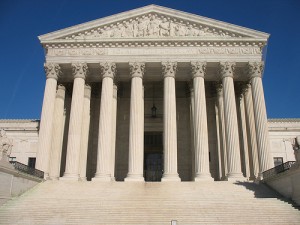”Adjacent” Means “Adjoining:” EPA Authority Down the Drain?
Posted
30 May 2023 in Case Notes
On May 25, 2023, the Supreme Court released its highly anticipated decision in Sackett v. Environmental Protection Agency, a case again construing the meaning of “waters of the United States.” The decision in favor of the petitioners was unanimous, but the underlying analyses varied widely. The case arose when Michael and Chantell Sackett began backfilling a housing lot near Priest Lake, Idaho. According to the EPA, this violated the Clean Water Act, which prohibits discharging pollutants including gravel into “navigable waters,”...





